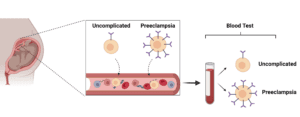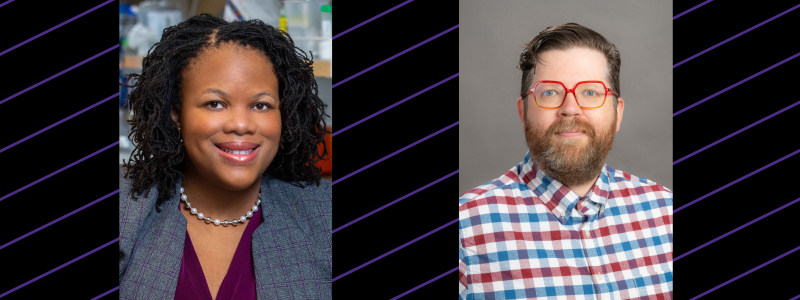UW Bioengineering Assistant Professor Patrick Boyle and Bioengineering Professor and Chair Princess Imoukhuede have each received grants from the Institute of Translational Health Sciences (ITHS).
Boyle received a $50,000 New Interdisciplinary Academic Partnership award in collaboration with Babak Nazer, associate professor UW Division of Cardiology. The project is titled AI-Powered Personalized Risk Stratification for Lethal Cardiac Events in Patients with Repaired Tetralogy of Fallot.
The research focuses on improving the identification of heart rhythm issues in individuals who have undergone surgery for Tetralogy of Fallot (rToF), a common congenital heart condition. The research team plans to use advanced medical imaging, artificial intelligence, and computer simulations to create a personalized risk assessment system. Their goal is to predict the likelihood of rhythm problems in these patients, providing better early detection without the need for invasive procedures.

Imoukhuede with Cheri Fang, UW Bioengineering acting instructor, were honored with a $65,000 Early-Stage Product Development award for her project, A blood test for preeclampsia prediction. The grant will allow the Imoukhuede lab in collaboration with Raj (Swati) Shree, assistant professor of obstetrics and gynecology, to develop a blood test capable of predicting preeclampsia before symptoms appear. Preeclampsia is a pregnancy related cardiovascular condition that poses risks to mothers and infants. By identifying pregnant women at high risk early on, healthcare providers could implement preventative measures, potentially saving numerous lives.
ITHS is dedicated to rapidly translating scientific discovery to clinical practice for the benefit of patients and communities throughout Washington, Wyoming, Alaska, Montana, Idaho and beyond. The organization encourages the application of scientific discoveries into practical use by supporting innovative research, fostering collaborations across various disciplines, and maintaining a strong commitment to developing the next generation of researchers through comprehensive educational and career development initiatives.



